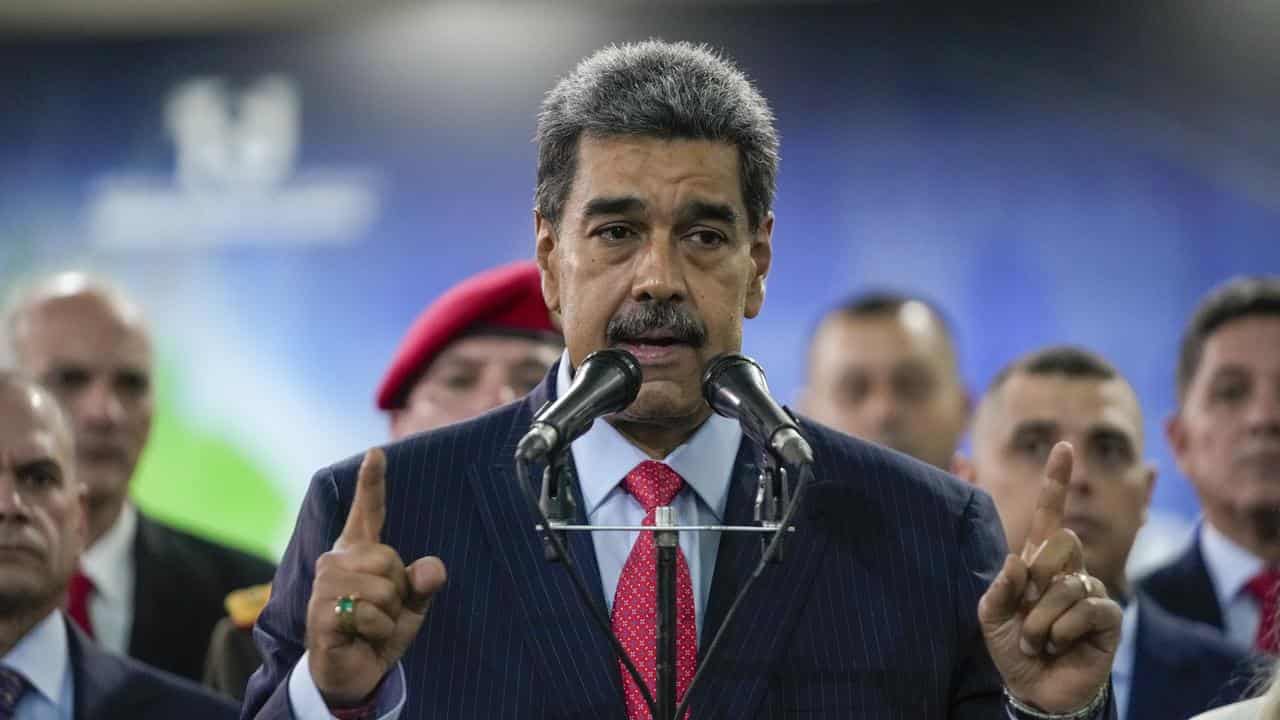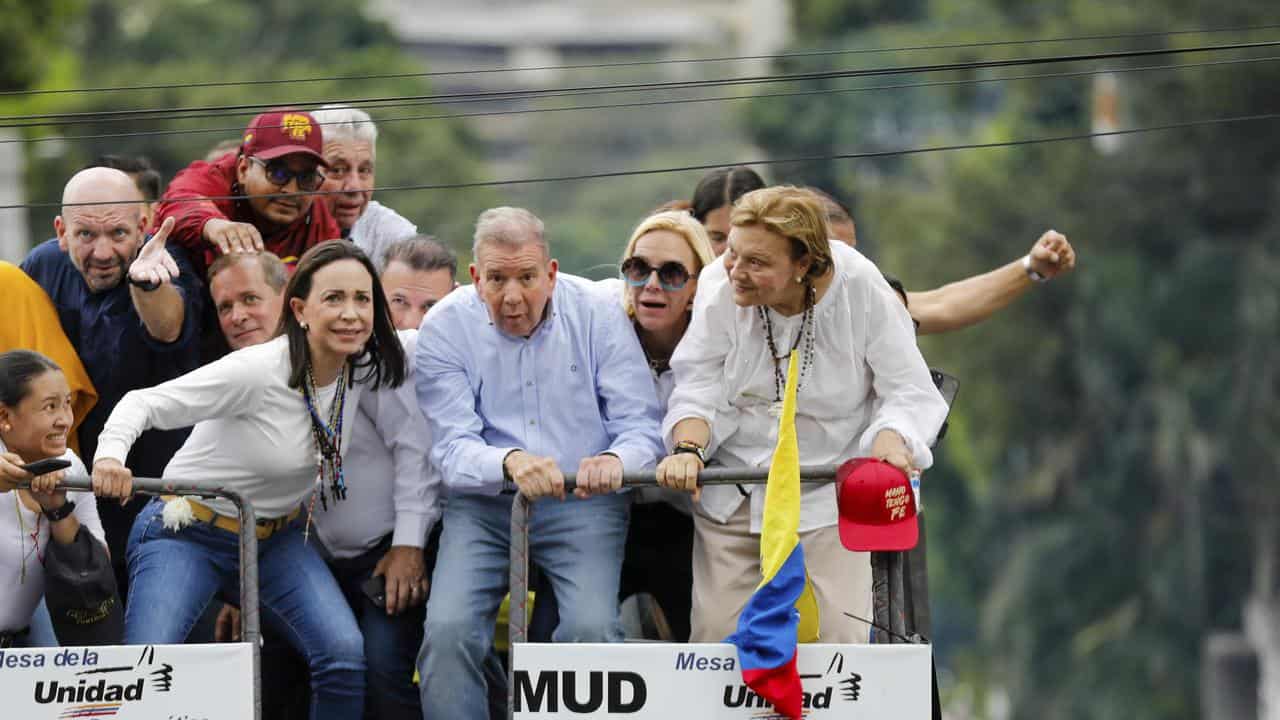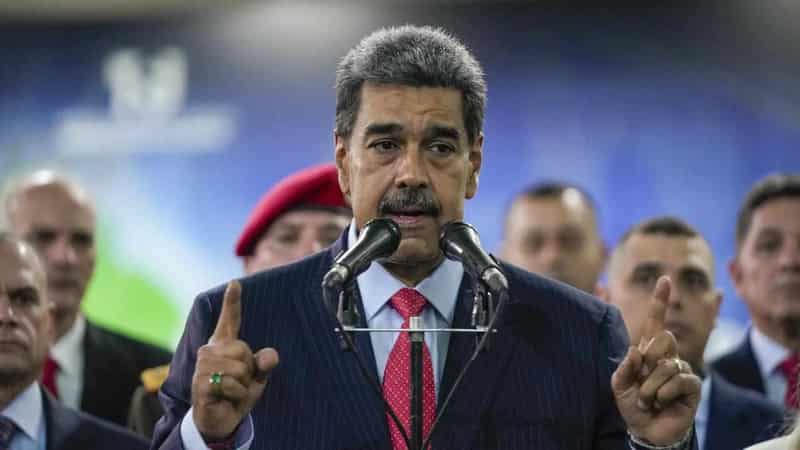
Venezuelan President Nicolas Maduro says he has asked the country's Supreme Court to conduct an audit of the presidential election after opposition leaders disputed his claim of victory and amid international calls to release detailed vote counts.
Maduro told reporters on Wednesday that the ruling party is also ready to show the totality of the vote tally sheets from Sunday's election.
"I throw myself before justice," he said to reporters outside the Supreme Court’s headquarters in Caracas, adding that he is "willing to be summoned, questioned, investigated".
This is Maduro's first concession to demands for more transparency about the election.
However, the Supreme Court is closely aligned with his government; federal officials propose the court's justices and they are ratified by the National Assembly, which is dominated by Maduro sympathisers.
Maduro's main challenger, Edmundo González, and opposition leader Maria Corina Machado, say they obtained more than two-thirds of the tally sheets that each electronic voting machine printed after polls closed.
They said the release of the data on those tallies would prove Maduro lost the election.

Maduro insisted to reporters that there had been a plot against his government and that the electoral system was hacked but he did not give any specifics or present any evidence.
He is expected to address media on Wednesday afternoon, his first official news conference since the election.
Pressure has been building against the president since the election.
The National Electoral Council, which is loyal to his United Socialist Party of Venezuela, has yet to release any printed results from polling centres as it did in past elections.
Maduro's close ally, Colombian President Gustavo Petro, on Wednesday joined several foreign leaders in urging him to release detailed vote counts.
A day earlier, another of Maduro's allies, Brazilian President Luiz Inácio Lula da Silva, along with US President Joe Biden called for the "immediate release of full, transparent, and detailed voting data at the polling station level".
Lula said of Maduro on Tuesday that "the more transparency there is, the greater his chance of having peace to govern Venezuela".
Machado said the vote tallies the opposition has obtained show González received roughly 6.2 million votes compared with 2.7 million for Maduro.
This is widely different from the electoral council's report that Maduro received 5.1 million votes, against more than 4.4 million for González.
"The serious doubts that have arisen around the Venezuelan electoral process can lead its people to a deep violent polarisation with serious consequences of permanent division," Petro said in a post on social media site X.
"I invite the Venezuelan government to allow the elections to end in peace, allowing a transparent vote count, with the counting of votes, and with the supervision of all the political forces of its country and professional international supervision," he added.
Petro proposed that Maduro's government and the opposition reach an agreement "that allows for the maximum respect of the (political) force that has lost the elections".
The agreement, he said, could be submitted to the United Nations Security Council.
Venezuela has the world’s largest proven crude reserves and once boasted Latin America’s most advanced economy, but it entered into free fall after Maduro took the helm in 2013.
Plummeting oil prices, widespread shortages and hyperinflation that soared past 130,000 per cent led to social unrest and mass emigration.
More than 7.7 million Venezuelans have left the country since 2014.
Many have settled in Colombia.









